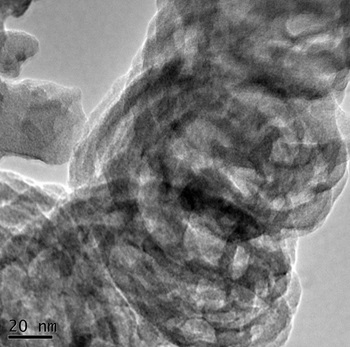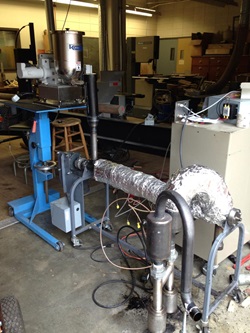Pyrolysis Bio-Oil Upgrading to Renewable Fuels
Project Title
Pyrolysis Bio-Oil Upgrading to Renewable Fuels
University
University of Idaho
Principal Investigator
U of I Forest, Rangeland and Fire Service
PI Contact Information
Armando McDonald, David McIlroy, Yinglei han, Blaise-Alexis Kengne
U of I Forest, Rangeland and Fire Science
Funding Sources and Amounts Provided
US Department of Transportation — $81,842
University of Idaho — $81,842
Total Project Cost
$163,684
Agency ID or Contract Number
DTRT12GUTC17; KLK906
Start Date
1/1/12
End Date
12/31/13
Description of Research Project
Converting under-utilized biomass from forestry and agricultural sectors into biofuels would benefit the nation’s energy security by displacing imported petroleum. More than 3 million tons/yr of biomass is available in the Pacific Northwest (PNW) alone (Skog et al. 2008). This level of biomass can theoretically produce 5 million barrels/y of pyrolysis bio-oils. Production of high yields of pyrolysis bio-oil, and their upgrading into "drop-in" fuels, still requires research on potential feedstock and catalyst development. Upgrading of pyrolysis bio-oils to biofuels has viable options for near-term commercial development for use in petroleum refineries. We will test the hypothesis that nickel (Ni) and ruthenium (Ru) catalytic surfaces can be grown on nanospring-supported mesh structures, which would enhance the catalytic hydrogenation of pyrolysis bio-oil to renewable fuels.
Implementation of Research Outcomes
This project supported 2 PhD students (Alex Fouetio Kengne and Yinglei Han). We have been able to successfully produce Ni decorated nanospring catalysts on a stainless steel mesh support (see figure below, left). We have also produced (and chemically characterized) pyrolysis bio-oil from both Douglas-fir and poplar feedstocks (see photo of pyrolysis unit, right). We developed protocols for hydrodeoxygenation/hydrogenation treatment of bio-oil and model compounds and product evaluation using commercial Ni and Ru based catalysts initially. We successfully synthesized Ni decorated nanospring catalysts (Ni-NS), in small amounts (mg level) and characterized the catalysts. It was shown that the Ni-NS catalyst had to be reduced (activated) before use. The Ni based catalysts were able to hydrodeoxygenate the model compounds and bio-oil and conversion was Ni content and temperature dependent. Low conversions using the Ni-NS catalysts were obtained, but only very small amounts of catalyst were used. Further work is required to scale up the Ni-NS catalyst production, increase Ni loading on NSs, and modify the reactor for future work in bio-oil upgrading.


A poster was presented at TCBiomass 2013, September 3-6 in Chicago, Illinois, by Armando McDonald. KLK906_Poster-TCBiomass 2013
Impacts and Benefits of the Project
The main impact of the project is the improvement of bio-fuels production which in turn will contribute to reduce the dependency from fossil fuels largely used in the transportation sector.
We have successfully synthesized nano-catalysts for pyrolysis bio-oil grading.
Presentations
- Presentation 1: Yinglei Han, Armando G. McDonald, Dan Mottern (2013) Characterization of bio-oil produced from woody biomass fast pyrolysis. Western Forestry Graduate Research Symposium 2013, Oregon State University, Corvallis, OR, April 22-23.
- Poster 1: Alex Kengne, David McIlroy, Armando McDonald (2013) XPS study of a Fischer-Tropsch cobalt catalyst supported on silica nanosprings during reduction, presented at symposium of the Pacific Northwest of the AVS (American Vacuum Society) held in Troutdale, OR, September 19 – 20.
- Poster 2: Alex Kengne, David McIlroy, Armando McDonald (2013) XPS study of a Fischer-Tropsch cobalt catalyst supported on silica nanosprings during reduction, presented at University of Idaho during the 9th annual College of Science Student Research Exposition, November 8.
- Poster 3: Alex Kengne, David McIlroy, Armando McDonald (2013) Reforming of sygas into higher order alkanes using a Fischer-Tropsch cobalt catalyst supported on silica nanosprings, presented at the 2013 MRS (Materials Research Society) fall meeting, December 1-6, Boston, MA.
Web Links
Final Report: UI_TranLIVE_Final Report_Pyrolysis Biooil Upgrading2
Keywords
- biofuels
- renewable fuels
- Pyrolysis
- hydrogenation
- biomass






